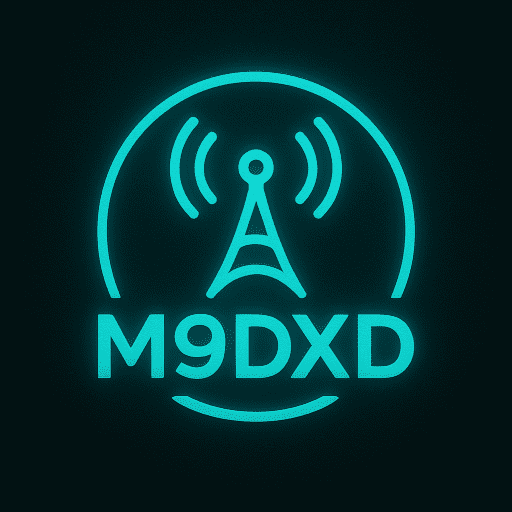Introduction
If you’ve ever wanted to talk to people across the world, help during emergencies with groups like RAYNET, or simply experiment with radio technology, getting your Foundation Licence is the place to start.
The Foundation Licence is the UK’s entry-level amateur radio qualification. It’s designed for beginners, so you don’t need any prior knowledge — just curiosity and enthusiasm. In this guide, you’ll learn exactly how to get your UK Foundation Licence, from study tips to exam day and beyond.
This guide will hopefully help you Get Your UK Foundation Amateur Radio Licence, So you can get on air soon
1. What is the Foundation Licence and How To Get Your UK Foundation Amateur Radio Licence?
The Foundation Licence is issued by Ofcom and managed by the Radio Society of Great Britain (RSGB). It allows you to:
- Transmit on a wide range of amateur radio bands.
- Use up to 20 watts of transmitting power.
- Operate your own radio station under your personal M7 callsign.
It’s the first step on the licensing ladder, followed by the Intermediate Licence (2E0) and the Full Licence (M0).
2. Who Runs the Exams?
- The RSGB organises Foundation exams on behalf of Ofcom.
- You don’t need to be an RSGB member, but their resources are highly recommended.
- Exams are now mostly held online, so you can take the test from the comfort of your own home or can still be taken at a club if you prefer
3. How to Study for the Foundation Exam
You’ll need to cover some core topics, including:
- Basic radio theory (frequencies, antennas, propagation).
- Safe operation (avoiding interference, electrical and RF safety).
- UK licensing rules and band plans.
- Operating practice (call signs, Q-codes, phonetic alphabet).
Study Resources
- Books: Foundation Licence Now! (RSGB) is the standard textbook.
- Clubs & Courses: Many local clubs run online and in-person training sessions.
- Practice Tests: Free mock exams are available on the RSGB website and other ham radio sites.
- Tip: Even if you’re studying alone, joining a local radio club is a great way to get support and hands-on experience.
4. Booking Your Exam
- Exams are booked online through the RSGB Exam Booking System.
- Current cost: around £35 (check RSGB for the latest).
- The exam is 26 multiple-choice questions.
- You have 55 minutes to complete it.
- Pass mark: typically 19 out of 26.

5. On Exam Day
- Online exams are proctored — you’ll need a webcam, microphone, and a quiet space.
- Have a calculator, pen, and paper ready.
- Results are shown on screen shortly after finishing.
6. After You Pass
Once you’ve passed:
- RSGB sends your result to Ofcom.
- You create a free account on the Ofcom Licensing Portal.
- Apply for your first amateur radio licence (no fee).
- Receive your unique M7 callsign (e.g., M7ABC).
Congratulations — you’re now a licensed UK radio amateur!
7. What’s Next?
With your Foundation Licence, you can:
- Operate on HF, VHF, and UHF bands within your licence conditions.
- Join RAYNET to support community and emergency communications.
- Experiment with different modes such as voice, CW (Morse), FT8, and digital radio.
- Join a club for events, contests, and field days.
https://web.archive.org/web/20251005202233if_/https://2e0xfd.com/uk-band-plan.html
Many Foundation licence holders later move on to:
- Intermediate Licence (2E0) — up to 50 watts power, more privileges.
- Full Licence (M0) — up to 400 watts, international recognition, and full operating rights.
Frequently Asked Questions
Q: How long does it take to get a Foundation Licence?
Most people study for a few weeks to a couple of months before taking the exam.
Q: Do I need to know Morse code?
No — Morse is optional, but learning it can open up more operating opportunities.
Q: How much does it cost to run an amateur station?
A simple VHF/UHF handheld radio costs around £30–£50. You can start small and expand as you go.
Q: Do I have to renew my licence?
Yes, Ofcom requires you to renew it online every 5 years — but it’s free.
Final Tips
- Don’t worry if the technical side feels daunting — the Foundation exam is designed for beginners.
- Start simple with a handheld radio or SDR, then expand as your knowledge grows.
- Amateur radio is about learning, experimenting, and having fun — enjoy the journey!
